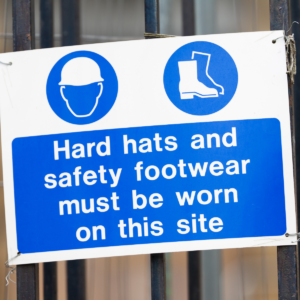6 Pitfalls New Construction Contractors Should Avoid
Any contractor in the business for long enough knows that any project can experience issues. There may be problems with the workload, cash flow or business practices. This means it is inevitable that a new construction contractor will make mistakes. Even if your company does not have many projects lined up, it is important to understand the nature of the project and whether it is within your scope of work. For this reason, being aware of the most common pitfalls can allow you to actively avoid issues and smooth convoluted projects. In this blog, we will identify 6 pitfalls new construction contractors should avoid in the future…
1. Hiring or retaining the wrong workers
More often than not, contractors try to finish tasks within a strict deadline by hiring less qualified workers. Although it may cost less to hire a less-experienced contractor, this may be counterproductive. They are more likely to make mistakes and therefore hinder the progression of projects. As well as that, unskilled workers also directly affect safety on site. New construction contractors generally do not have the liquidity to refinance themselves when costly internal mistakes occur. Therefore, do not employ the wrong workers for crucial roles such as estimating, account, and project management. At the end of the day, profitable construction companies are only as good as their people.
2. Not leveraging new technology
With today’s competitive construction industry, operating with outdated software and technology can reduce the efficiency and competitive advantage against heavily digital contractors. The construction industry is undergoing a digital change, undoubtedly resulting in the collapse of companies that refuse to adapt.
The predominant software contractors should consider implementing is fully integrated, cloud-based software accounting software. This software allows construction contractors to track of the number of records, transactions, financial activities, progress and other project aspects. Ultimately, it will enable you to track whether your project is on target or over budget. Some of the lucrative benefits of construction accounting software are:
- tracking project financials in one place in seconds
- storing documentation securely online rather than filing physical paperwork
- one single location to store all documents relating to each project
- increases prospective customers confidence in the management of their project
- track and record time, materials and costs
Furthermore, contractors can utilise intuitive business intelligence software to better understand project data and leverage analytic power to project future project costs to bid accordingly. By implementing new technologies into your construction business early on, you will be setting your business up for continued success in the future.
3. Construction contractors are not adequately assessing risk
Even though risk cannot be avoided entirely, contractors should make efforts to minimise risk. One risk that needs to be adequately managed is accidents on construction sites. Contractors who put off assessing risks in the workplace are more likely to incur high costs and disruptions to projects. To limit the likelihood of accidents and injuries on site, contractors should:
- utilise safety gear (personal protection equipment) i.e., hard hats, steel-toed boots, eye protection, harnesses and hearing protection.
- undertake regular equipment maintenance
- develop safety protocols for staff to follow
- train staff on safety protocols
- display warning signs where necessary i.e., danger/hazard signage, ropes, cones.

Similarly, with construction companies being heavily capital intensive, assessing the risks of inadequate capital levels is important. Insufficient funds to cover your business when demand is low and for unexpected surprises may lead to the demise of your company. Construction contractors should strategically assess the risks of tying up working capital in ongoing projects and overinvesting in fixed assets that are rarely utilised.
4. Construction contractors focusing on quantity instead of quality
Lack of capacity is a major pitfall that most contractors will face at some point. Taking on as much business as possible is generally the goal for every new construction contractor. At the end of the day, you want to get your name out there and generate enough revenue to break even. However, the repercussions of a heavy workload are delayed schedules, overworked employees and unsatisfied clients. Remember to focus on quality, not quantity. This entails going through a bid/no-bid decision-making process and undertaking due diligence in estimating and job costing. With most construction projects obtained through competitive bids, it is important to develop a strategy for presenting your competitive prices to prospective customers.
Remember: you don’t want to simply offer the lowest bid. Unrealistic low bidding will mean you won’t be able to meet customers expectations of costs further down the track.
It should also be noted that contractors should only take jobs that are within their normal scope of work. Focus on your core competencies and stick to them. This does not mean that later down the track you can’t expand. If you want to take on larger projects, do it incrementally. Similarly, it is important to strategically assess the project you are agreeing to and the potential consequences of contractual terms. Once you have selected a project that is profitable and within your business capacity, you should carefully plan out the steps to successfully deliver a quality project.
5. Under-estimating construction costs
Estimating costs and budgeting is integral part of construction projects. The repercussions of under-estimating costs or over-estimating costs are losing a bid. New construction contractors need to be able to estimate costs by taking into consideration material, labour, supplies and customer variables. By doing this, you will be able to provide more accurate quotes to prospective customers. Additionally, detailed budgeting ensures you are not left scrambling to find funds to finance your projects. Ideally, your budget should leave at least a 10% contingency to cover any unexpected costs that may arise.
Even if your company is desperate for work, it is not worthwhile to accept every project thrown in your direction. Assess the project’s risks, the scope of work and then focus on areas where you can cut costs without compromising on quality. when first entering the field, be strategic and methodical.
Check out more about what PiPr has to offer here, or feel free to get in touch.

